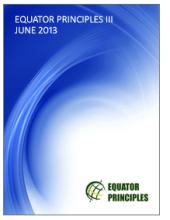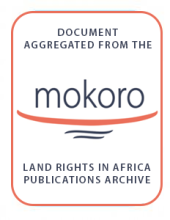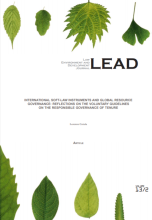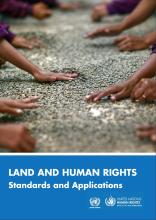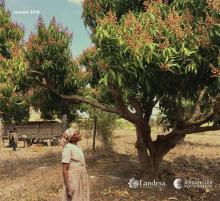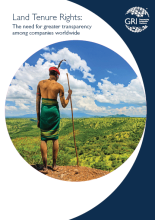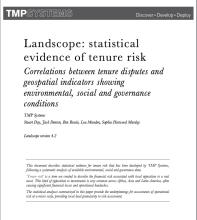Additional Resources
Equator Principles
The Equator Principles (EPs) is a risk management framework, adopted by financial institutions, for determining, assessing and managing environmental and social risk in projects and is primarily intended to provide a minimum standard for due diligence and monitoring to support responsible risk decision-making.
Gender and Collectively Held Land: Good Practices and Lessons Learned from Six Global Case Studies
The aims to understand how formalizing or securing rights to collectively held lands can affect women and men differently and how projects and interventions can best address gender differences. It synthesizes findings from six case studies – from China, Ghana, India, the Kyrgyz Republic, Namibia, and Peru – that assess interventions to strengthen collective tenure and ensure that both women and men benefit from the improved land tenure security.
Guiding Principles on Business and Human Rights
The UN Guiding Principles on Business and Human Rights are a set of guidelines for States and companies to prevent, address and remedy human rights abuses committed in business operations.
Guiding Principles on Large Scale Land Based Investments (LSLBI)
The Guiding Principles are designed to help a number of stakeholders develop larger-scale agricultural investments that are more likely to prove sustainable, beneficial, and successful for communities, investors and governments. They are based on a foundation of human rights and gender equality and promote six fundamental principles that include: respecting the human rights of communities; respecting the land rights of women; conducting holistic assessments of investments; recognising the important role of smallholder farmers for achieving food security and poverty reduction; promoting collaboration among member states; and, enhancing accountability and transparency to improve governance.
INTERNATIONAL SOFT-LAW INSTRUMENTS AND GLOBAL RESOURCE GOVERNANCE: REFLECTIONS ON THE VOLUNTARY GUIDELINES ON THE RESPONSIBLE GOVERNANCE OF TENURE
This article reflects on the Tenure Guidelines as a tool for addressing resource governance challenges. It outlines the process through which the Tenure Guidelines were developed and reviews key features of their content, and then focuses on two issues: the legal significance of the VGGT, and the nature of initiatives to advance their implementation.
Land and Human rights: Standards and Applications
This basic legal reference publication has been prepared as part of the OHCHR output on land and human rights. It aims to provide a concise and user-friendly guide on key international legal standards, including international human rights, humanitarian and criminal law, to those working on land issues so as to make them aware that such standards may be applicable to their work
Land governance and inclusive business in agriculture: advancing the debate
This report reviews the idea of inclusiveness in agricultural investments and analyses what ‘inclusiveness’ means to different value chain actors.
Land rights as a critical factor in donor agricultural investments: Constraints and opportunities for yieldwise in Kenya's mango value chain
This study provides a case study of the mango value chain in Kenya and seeks to better understand key linkages between land rights and project outcomes. It explores (1) whether and how land rights for Kenya’s mango farmers affect project uptake and success; and (2) what (if any) are this project’s unintended consequences on land tenure in implementation areas.
Land Tenure Rights: The need for greater transparency among companies worldwide
This publication is designed to help companies understand the need for enhanced transparency around land-related impacts and the importance of respecting the land tenure rights of local communities. It offers insights into what land-related sustainability information stakeholders are interested.
Landscope: statistical evidence of tenure risk. Correlations between tenure disputes and geospatial indicators showing environmental, social and governance conditions
This report explains TMP Systems’ statistical analysis of how geospatial data showing indicators of local environmental, social and governance (ESG) conditions correlate with tenure risk. The results indicate strong enough correlations between some of these indicators and tenure risk, to support use of the indicators by companies and investors. This work underpins something new and useful, which is Landscope’s ability to provide location-specific risk assessments across many developing countries.


